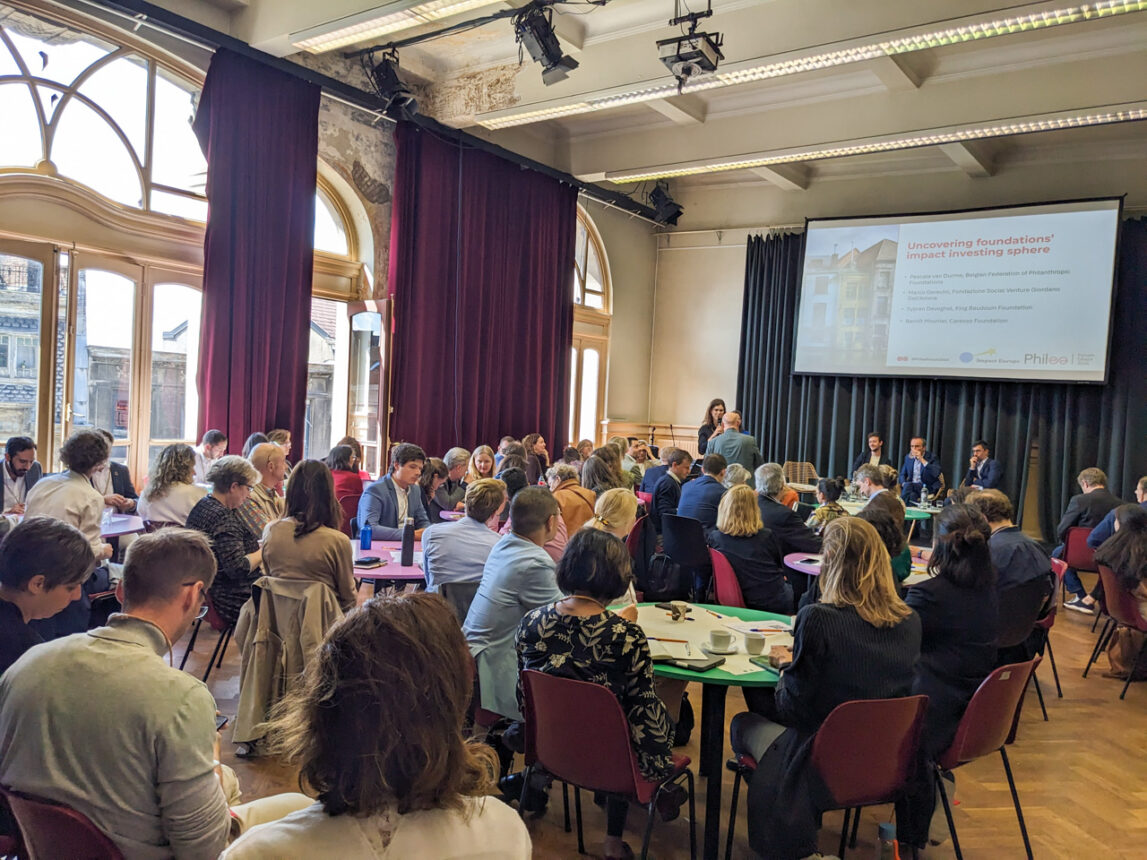A new initiative aims to bring access to a wider range of impact investing tools and expertise to foundations and other philanthropic organisations looking to expand their involvement in impact investing.

Impact Europe and Philea – the Philanthropy Europe Association – have launched a programme designed to boost the use of impact investing by the continent’s foundations through sharing knowledge, expertise and tools.
The launch was marked by the publication of a joint paper – Philanthropic Organisations Using the Entire Toolbox for More Impact – which highlights the challenges and opportunities for greater use of impact investing by the philanthropic sector and looks at the surrounding regulatory and policy environment. Impact Europe is a European impact investing network formerly known as EVPA.
The initiative was launched at a Philea Forum event in Ghent, Belgium on May 27. It aims to capitalise on growing interesting in impact investing by offering support to foundations and other philanthropic institutions in Europe that may not have the expertise or confidence or to add the discipline to their more traditional grant-making and endowment investment strategies.
Peter Cafferkey, philanthropy and foundations market development lead at Impact Europe, told Impact Investor that foundation leaders are increasingly seeking to bridge the gap between conventional investment strategies deployed to manage their endowments and their more impact-driven grant-making activities.
“There is real interest and excitement when you bring these two things together”, he said. “Boards and CEOs at foundations are now saying we need to use all the tools available to us to achieve our social mission. We can’t ignore the endowment as a tool for social change and run the risk of not being relevant in today’s world.”
Impact Europe and Philea are championing an organic approach to introducing more impact investing into the mix, tailored to the needs and capabilities of individual foundations.
Organic process
“We’re very clear at the start of the project that, while there is growing interest in this space, there are different levels of expertise and knowledge. It doesn’t have to be a jump straight to some sort of participant agreement in a syndicated investment across four countries. You can start a lot smaller and then make steps. For example, if you are making a grant to a social enterprise, maybe you could think about this being a repayable grant,” Cafferkey said
The freedom of foundations to adopt impact investing strategies has been hampered by interpretations of legal or fiscal constraints, such as fiduciary requirements to maximise returns on investment from an endowment.
That situation is changing in some countries, where the regulatory frameworks for investors have been clarified or amended in a way which facilitates investing for wider social and environmental benefit, along with the quest for market rate returns.
In the UK, more flexible interpretations of fiduciary requirements have emerged, which have already led to greater interest in impact investing opportunities among UK-based financial institutions and foundations, along with calls for more incentives. A similar trend is emerging in the Netherlands, where the tax regime is being modified to make impact investor easier.
Substantial contributions
The contribution that foundations could make to impact investing is significant. Institutional philanthropy in Europe includes over 186,000 foundations with accumulated annual expenditure of €54bn, while the European direct impact investing market is estimated at €80bn, according to Impact Europe.
“Foundations can become an agent of change in the wider financial sector. They’re not big enough to move the whole sector, but they can start to ask questions of asset managers and start to affect their behaviour,” Cafferkey said.
However, he stressed that legal restraints remain an issue in several European countries, which when considered alongside investment constraints foundations may face relating to their own statutes means the adoption of impact investing may not be suitable for many, at least for now.
“It’s not for everyone and we totally respect that. This initiative is very much about empowering those who want to do it, so they don’t have to start from scratch on their own,” he said.
The partners are now working with foundations to create a steering group to help develop the initiative further. A related event will be held during Impact Europe’s Impact Week 2024, to be held in Bilbao in November.






